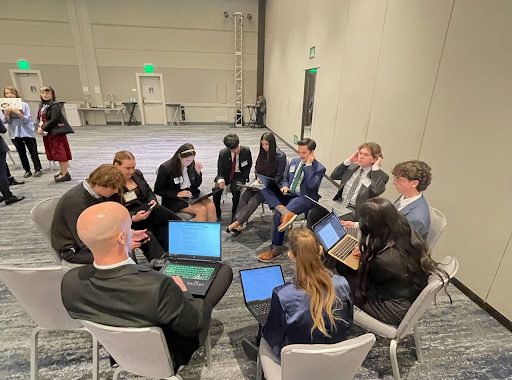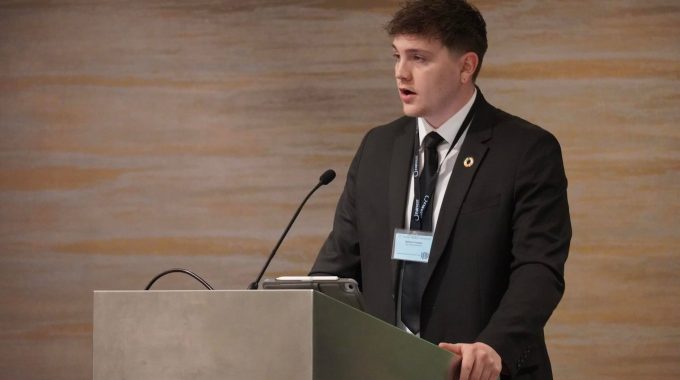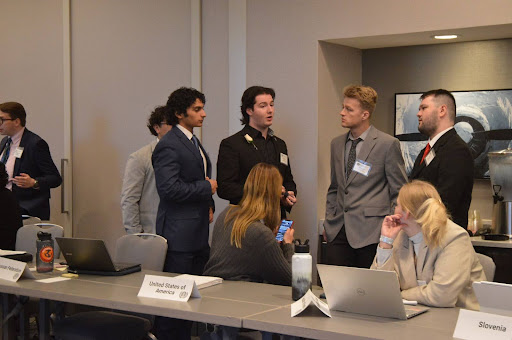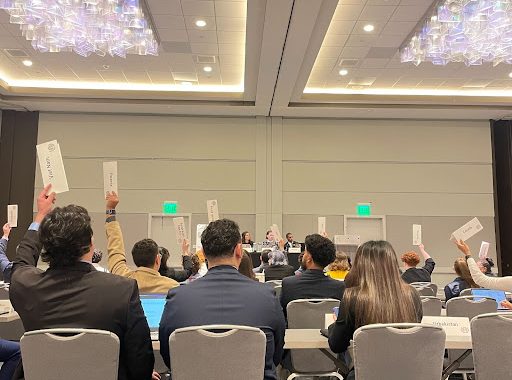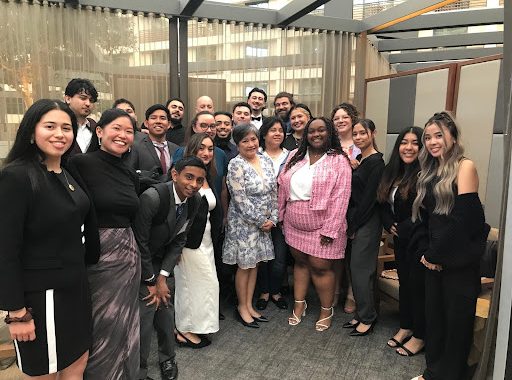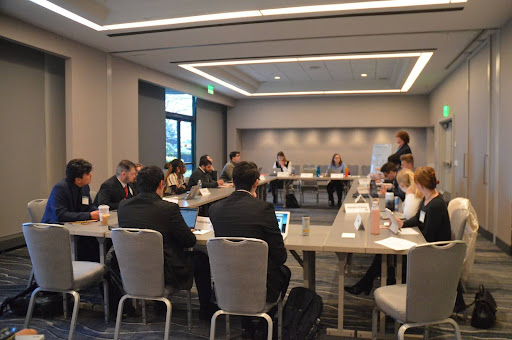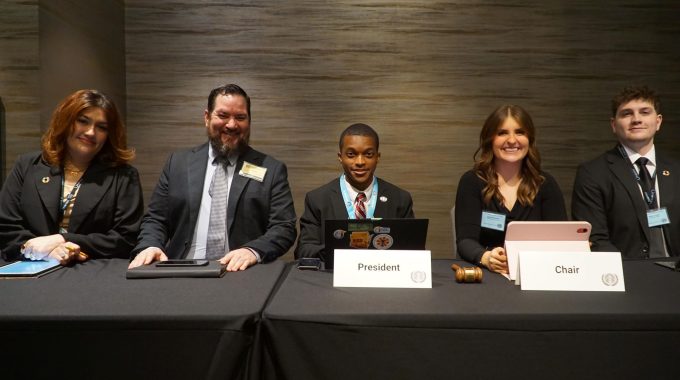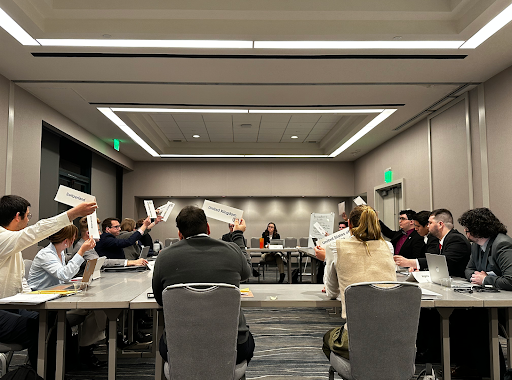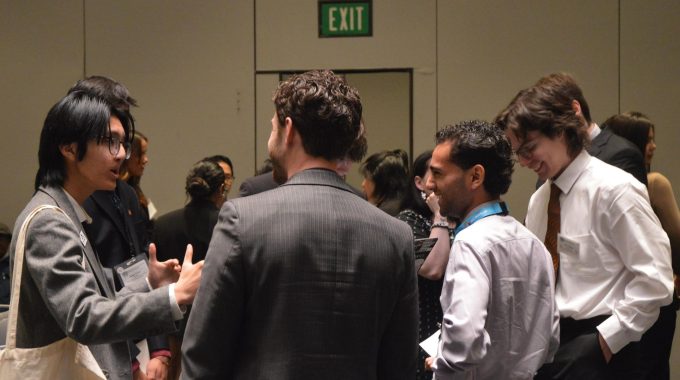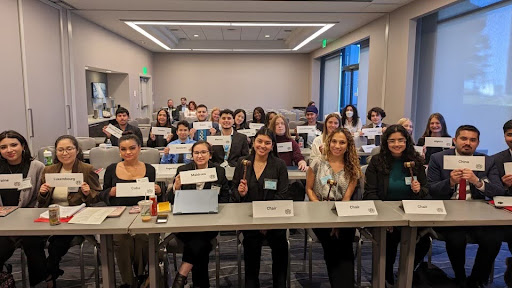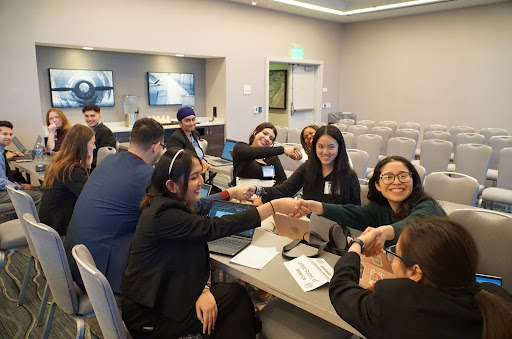Progress and Pressures: General Assembly’s Push for Resolutions
Revisiting the General Assembly after lunch, significant motions have been made on a consensus resolution regarding their special agenda topic: Bridging the technological divide between developed and developing nations. The session began with a p27 – moderated caucus, allowing Bangladesh, Bolivia, the Russian Federation, South Africa, Saudi Arabia, and Brazil to present their resolutions to the full assembly. In contrast to this morning’s tactical back-and-forth and undermining of countries’ motions on the floor, this post-lunch session has proved to be much more collaborative and friendly. Speaking to delegate from Syria, Ryley Lindy, she reaffirms that “the main thing is collaboration and trying to bridge the regional divides and work collaboratively.” Since its commencement this morning at 11 o’clock, delegates have made serious progress on forming a singular resolution on the special agenda. A final consensus resolution has been submitted for review, and motions to move back to topic one are in order.
A p30 vote initiated by the United States is the first motion on the floor as soon as the president, Marcus Williams, calls the first agenda topic, genocide and mass atrocities, onto the floor. The four speakers, Vietnam, Canada, Brazil, and Rwanda, each defended their resolutions to the assembly before a forced move to substantive debate. Delegates are restless as drafted resolutions are presented before the assembly, both because of pressures from DCOR (Department of Conference Official Records) for their already late resolution and agitation from hunger. A mandatory unmoderated caucus has delegates once grouped into their designated resolution blocs, Global South, Arab and African nations, European nations, Latin, and Vietnam and Asian nations. Delegates speedily try to rework their resolutions as the chair makes a last-minute directive that resolutions are limited to 10 sponsors total; this is enacted so that passing of their resolutions can be done efficiently and speedily. The African and Arab bloc finishes first, with total consensus on their resolution. Delegate from Saudi Arabia, Grant Latour, is establishing an “agreement that our bloc [African and Arab nations] is currently trying to make with other blocs is to not amend our papers in exchange for not amending theirs. We understand that countries have their own views and member states are totally ok to have those, we just want to ensure that the integrity of our papers and the integrity of the work we have done doesn’t go to waste. Even though we personally have disagreements with a lot of bloc papers and we’re sure states disagree with ours, we want to ensure that we can get through this to actually pass resolutions.”
As delegates break for dinner, knowing they will come back to an immediate vote for a special agenda topic, hopefully followed by voting for agenda topic 1. General Assembly delegates are currently under immense pressure to succeed on the third night of MUNFW. Will delegates be able to put their differences aside for voting, or will they succumb to time constraints and have to push voting for topic 1 to tomorrow?
Micheala Appiah
World Press Reporter
Weber State University

